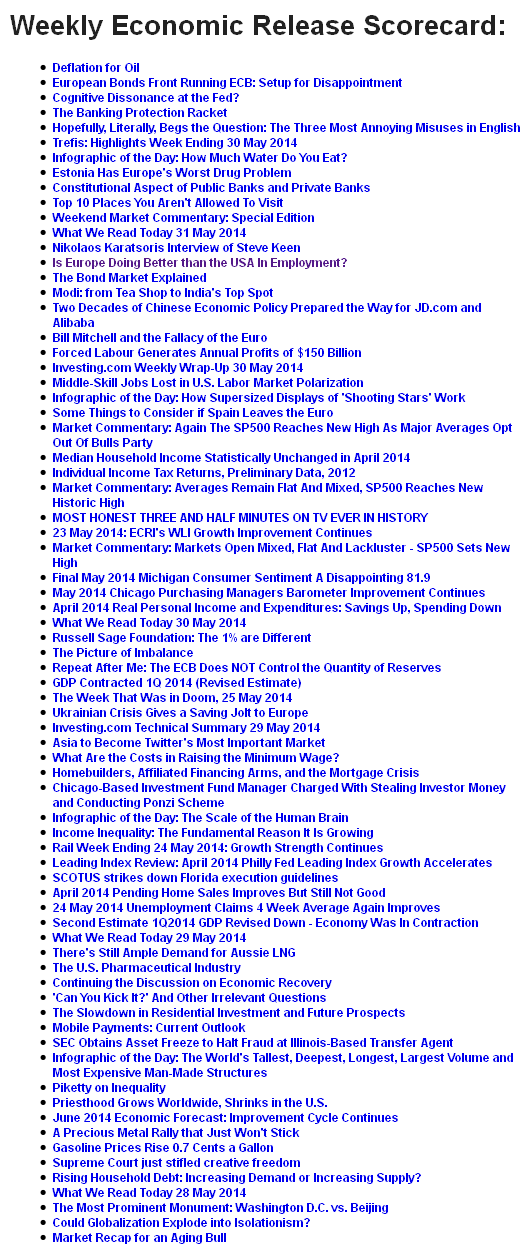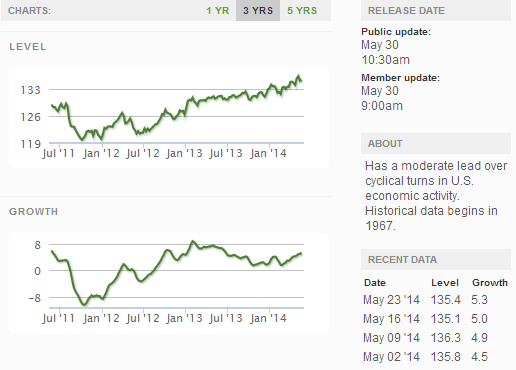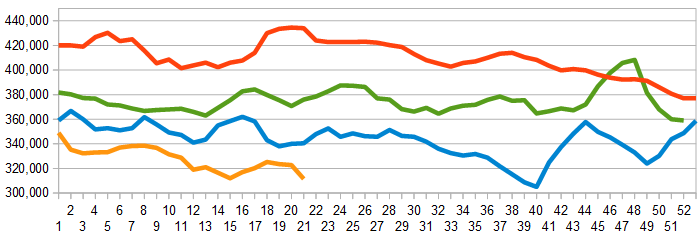Are We Dealing with a Full Set of Facts or Cherry Picking?
In Europe's Secret Success, Nobel Laureate Paul Krugman stated as fact:
I’ll be spending the next couple of days at a forum sponsored by the European Central Bank whose de facto topic — whatever it may say on the program — will be the destructive monetary muddle caused by the Continent’s premature adoption of a single currency. What makes the story even sadder is that Europe’s financial and macroeconomic woes have overshadowed its remarkable, unheralded longer-term success in an area in which it used to lag: job creation.
Follow up:
Most of this Professor Krugman's op ed centered on France - although some data and links were provided to other posts which support the "fact" that Europe is doing better than the USA with jobs creation. From one of the linked posts (which Professor Krugman authored) came this graph and associated quote:
If you looked at Europe in general and France in particular, you saw that yes, people retired earlier than in America, and also that fewer young people worked — in part because they didn’t have to work their way through college. But on the eve of the economic crisis employment rates among prime-working-age adults had converged.
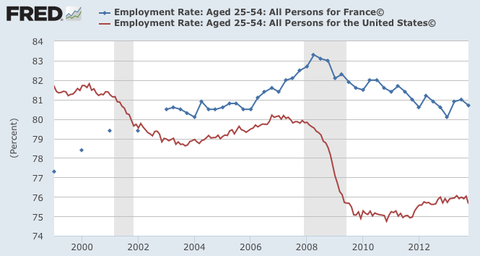
Let us consider what we are looking at - or trying to prove. Professor Krugman selected a data set which supported the "fact" that France was doing better than the USA in job creation. [Note: I believe Professor Krugman is a political animal - and many of his NYT "economic" posts have distorted "facts" to support a political agenda.] Even so, looking at the above graph, one can see that the USA is on an improvement trend whilst France appears to be headed down.
My position is that NEITHER country should be proud of their records on jobs creation. The economic engines are very different in the USA and France (and Europe in general) - and the way employment is created is different. For starters, France's big employer is the government - literally double the USA.
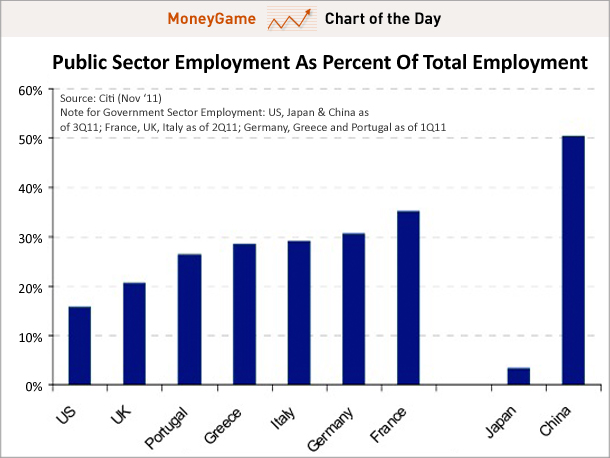
In my travels, no advance economy requires as much work by employees as America - specifically weekly hours worked and limited vacation time. This is not to mention that USA productivity rates are the target for globalized companies operating outside the USA. This leads to the second observation on jobs creation - Americans must work for more years than other advanced economies as the USA safety nets are less "safe". Expanding the employment age range provides a different conclusion than Professor Krugman implied.
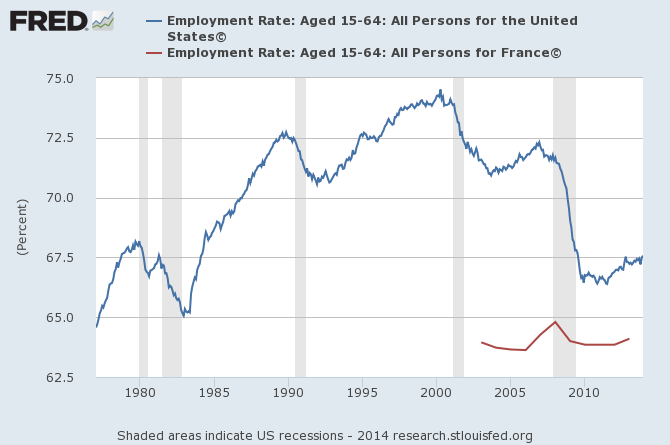
Changing the discussion from French employment to Europe, Europe's employment is a mixed bag - just like employment statistics vary state-by-state in the USA. Here is a view of employment comparing Europe to the USA.
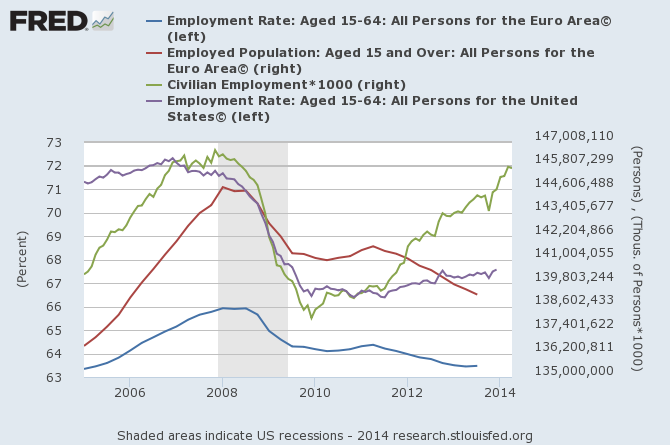
The deteriorating red (total employment) and blue (employment rate) lines are for Europe. Europe clearly is doing the wrong things, and one should be ashamed of implying the opposite is true.
This post begs several issues, even though the USA is on a "better" trend line in job creation:
- Retirement ages - because the USA "forces" more of its population to work longer to survive is nothing to be proud of.
- Safety nets - these vary country by country in Europe. In the USA there is only marginal variation from State-to-State. You cannot compare employment statistics for Euro zone members with sophisticated safety nets (such as France or Germany) to the USA. It is not necessary for one to work IF a safety net is there to provide income without working.
- Education - Most advanced countries in the world provide free education to their university students. European students likely delay entry into the workforce (as they are living on the government's nickel), they do not have to work to pay off student loans, and can start saving for retirement earlier.
My Bias in Conclusion
There is a big difference between the various advanced economies - especially the ways each are geared. It is dangerous to compare small slices of data - and believe there is an action plan based on what the other country did to cause the good data. Finally, I HATE data points such as "employment rate" - number of employed people divided by an estimated total labor force. This requires one to determine who is retired or disabled or a housewife or house husband or who is in school or ..... And note that each country uses a different technique to determine its labor force with a wide range of accuracies.
Other Economic News this Week:
The Econintersect Economic Index for June 2014 is showing continued growth acceleration. Outside of our economic forecast - we are worried about the consumer's ability to expand its consumption as the ratio between income and expenditures are near all time highs. The GDP contraction for 1Q2014 is a paper contraction as GDP is determined by playing games with accounts. No serious element of the economy was in contraction (except government spending) which is already expanding in the 2Q2014.
The ECRI WLI growth index value has been weakly in positive territory for many months - but now in a noticeable improvement trend. The index is indicating the economy six month from today will be slightly better than it is today.
Initial unemployment claims went from 326,000 (reported last week) to 300,000 this week. Historically, claims exceeding 400,000 per week usually occur when employment gains are less than the workforce growth, resulting in an increasing unemployment rate. The real gauge – the 4 week moving average – improved marginally from 322,750 (reported last week as 322,500) to 311,500. Because of the noise (week-to-week movements from abnormal events AND the backward revisions to previous weeks releases), the 4-week average remains the reliable gauge.
Weekly Initial Unemployment Claims - 4 Week Average - Seasonally Adjusted - 2011 (red line), 2012 (green line), 2013 (blue line), 2014 (orange line)
Bankruptcies this Week: Lupatech (Chapter 15)
Click here to view the scorecard table below with active hyperlinks
Weekly Economic Release Scorecard:
